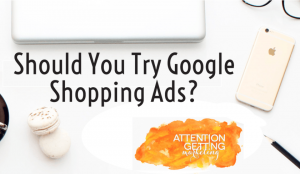 Fun fact about me, I actually met my fiancé on Twitter. There’s a story there, but it can wait for another day (plus, “How I Met My Wife on Twitter” makes for a higher impact headline). Anyway, the point of this personal confession is that, naturally, I’m a bit biased toward the benefits of Twitter for marketing. However, with the recent news that Google will be indexing tweets… again ‒remember the pre-2011 glory days with Google Realtime Search‒ there are, objectively, a lot more perks on the way in using Twitter for marketing.
Fun fact about me, I actually met my fiancé on Twitter. There’s a story there, but it can wait for another day (plus, “How I Met My Wife on Twitter” makes for a higher impact headline). Anyway, the point of this personal confession is that, naturally, I’m a bit biased toward the benefits of Twitter for marketing. However, with the recent news that Google will be indexing tweets… again ‒remember the pre-2011 glory days with Google Realtime Search‒ there are, objectively, a lot more perks on the way in using Twitter for marketing.
The Search and Social Media Marketing Cycle:
Fundamentally, what Google does best is to help people find things. Meanwhile, Twitter’s expertise is in helping people talk about things publicly. The light bulb may have already gone off in your head, but essentially, what are we all trying to do as marketers? We all want people to find our organizations, talk about the cool things we’re doing, and ultimately, buy our offerings. With Twitter carrying weight on Google again, the amount of people who are tweeting about your organization will enrich your SEO efforts – and vice versa as your findability will support your sharability.
The steps to achieving this marketing advantage from Twitter, however, are not easy set-it-and-forget-it options. Ultimately, this means you have to get more tactical in your Twitter activity. Remember:
- If you don’t tweet your own content, who will? Ensure that you have a regular cadence of Twitter activity.
- Share other people’s content to get others to share yours. In his own post analyzing the Twitter / Google connection, Eric Enge noted that Google’s criteria for cataloging tweets will be designed to deter people from gaming the system. In other words, search rankings will be designed to show what other people are genuinely talking about (not what bots or promoted tweets are saying), so your best bet is to get people to genuinely appreciate your content by actively sharing their content. A good balance to maintain often ranges between 50/50 and 80% of other people’s content vs. 20% of your own.
- Create quality, share-worthy content. The raised significance of Twitter for marketing from Google’s integration will inherently put pressure on your content marketing efforts. Don’t cave on sacrificing quality for quantity. The average shelf life of a tweet often ranges between 6 minutes and an hour – after that, in the eyes of people on Twitter, it’s like it never happened. You can always tweet out your best content again if that’s what people find most valuable. Blasting out generic stuff just to put something out there, though, gets you nowhere.
Supporting the Buyer’s Journey:
Customer experience management research shows that companies with a formal plan to map and manage their buyer’s journey enjoy 30% greater year-over-year increases in positive social media / word-of-mouth mentions, on average, compared to their peers who do not do so. By working to encourage, enable, and / or enhance the Twitter activity around your organization, you can bridge the search-oriented and social-oriented paths of the buyer’s journey into a single, shared stream. For buyers who don’t like to be marketed or sold to, in particular, this is an opportunity to actively use what other people are saying to do your marketing for you.
Amplifying Twitter as a Sales Tool:
Sales effectiveness research shows that 100% of Best-in-Class firms ensure that their remote or on-the-go sellers have full access to social media tools, versus only 60% of Average firms, and 0% of Laggards. That’s right, ALL of the Best-in-Class organizations surveyed have worked to ensure that their sales reps can glean value from social media. Where the Google / Twitter integration fits in, is now, sellers can build on this established value in social media by more thoroughly searching through relevant activity on Twitter. From prospecting for new clients, to researching what buyers have been tweeting about and tailoring talk tracks accordingly (it’s only creepy if it’s not relevant and valuable), sales people can more seamlessly leverage Twitter to support their activities.
Again, I’m pretty biased on the business benefits of Twitter for marketing, so I’m actually consciously stopping here. If you, however, have any insights of your own to add, please do so in the comments below.
(198)







